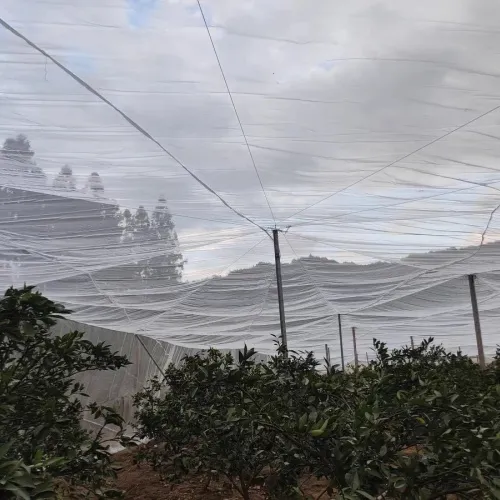-
 Afrikaans
Afrikaans -
 Albanian
Albanian -
 Amharic
Amharic -
 Arabic
Arabic -
 Armenian
Armenian -
 Azerbaijani
Azerbaijani -
 Basque
Basque -
 Belarusian
Belarusian -
 Bengali
Bengali -
 Bosnian
Bosnian -
 Bulgarian
Bulgarian -
 Catalan
Catalan -
 Cebuano
Cebuano -
 China
China -
 Corsican
Corsican -
 Croatian
Croatian -
 Czech
Czech -
 Danish
Danish -
 Dutch
Dutch -
 English
English -
 Esperanto
Esperanto -
 Estonian
Estonian -
 Finnish
Finnish -
 French
French -
 Frisian
Frisian -
 Galician
Galician -
 Georgian
Georgian -
 German
German -
 Greek
Greek -
 Gujarati
Gujarati -
 Haitian Creole
Haitian Creole -
 hausa
hausa -
 hawaiian
hawaiian -
 Hebrew
Hebrew -
 Hindi
Hindi -
 Miao
Miao -
 Hungarian
Hungarian -
 Icelandic
Icelandic -
 igbo
igbo -
 Indonesian
Indonesian -
 irish
irish -
 Italian
Italian -
 Japanese
Japanese -
 Javanese
Javanese -
 Kannada
Kannada -
 kazakh
kazakh -
 Khmer
Khmer -
 Rwandese
Rwandese -
 Korean
Korean -
 Kurdish
Kurdish -
 Kyrgyz
Kyrgyz -
 Lao
Lao -
 Latin
Latin -
 Latvian
Latvian -
 Lithuanian
Lithuanian -
 Luxembourgish
Luxembourgish -
 Macedonian
Macedonian -
 Malgashi
Malgashi -
 Malay
Malay -
 Malayalam
Malayalam -
 Maltese
Maltese -
 Maori
Maori -
 Marathi
Marathi -
 Mongolian
Mongolian -
 Myanmar
Myanmar -
 Nepali
Nepali -
 Norwegian
Norwegian -
 Norwegian
Norwegian -
 Occitan
Occitan -
 Pashto
Pashto -
 Persian
Persian -
 Polish
Polish -
 Portuguese
Portuguese -
 Punjabi
Punjabi -
 Romanian
Romanian -
 Russian
Russian -
 Samoan
Samoan -
 Scottish Gaelic
Scottish Gaelic -
 Serbian
Serbian -
 Sesotho
Sesotho -
 Shona
Shona -
 Sindhi
Sindhi -
 Sinhala
Sinhala -
 Slovak
Slovak -
 Slovenian
Slovenian -
 Somali
Somali -
 Spanish
Spanish -
 Sundanese
Sundanese -
 Swahili
Swahili -
 Swedish
Swedish -
 Tagalog
Tagalog -
 Tajik
Tajik -
 Tamil
Tamil -
 Tatar
Tatar -
 Telugu
Telugu -
 Thai
Thai -
 Turkish
Turkish -
 Turkmen
Turkmen -
 Ukrainian
Ukrainian -
 Urdu
Urdu -
 Uighur
Uighur -
 Uzbek
Uzbek -
 Vietnamese
Vietnamese -
 Welsh
Welsh -
 Bantu
Bantu -
 Yiddish
Yiddish -
 Yoruba
Yoruba -
 Zulu
Zulu
Durable Nylon Insect Mesh Solutions for Effective Pest Control in Outdoor Spaces and Gardens
The Versatile Benefits of Nylon Insect Mesh
In an era of increasing concern for sustainability and pest management, nylon insect mesh has emerged as an essential tool for both agricultural and home gardening practices. This lightweight, durable fabric offers a variety of benefits that make it an ideal choice for protecting plants and crops from unwanted insects while allowing sunlight, air, and moisture to penetrate, ensuring healthy growth.
Nylon insect mesh is constructed from high-quality, synthetic fibers that are resistant to wear and tear. Unlike traditional cotton or other natural mesh fabrics, nylon provides superior durability, allowing it to withstand the elements and last longer in varied climatic conditions. This longevity makes nylon insect mesh a cost-effective solution for both commercial farmers and home gardeners, as it reduces the frequency of replacement, thereby minimizing waste and contributing to more sustainable practices.
One of the primary applications of nylon insect mesh is in protecting crops from pests. Many common insects, such as aphids, beetles, and caterpillars, can wreak havoc on plants, leading to reduced yields and increased reliance on chemical pesticides. By using nylon insect mesh, farmers and gardeners can create a physical barrier that keeps these pests at bay without the need for harmful chemicals. This not only helps in cultivating healthier plants but also promotes an organic approach to pest control that is safe for the environment and non-target species.
The benefits of nylon insect mesh extend beyond pest protection
. Its fine mesh structure allows for excellent air circulation, thus preventing the stagnation of moisture that can lead to fungal diseases. Additionally, the mesh facilitates the penetration of sunlight, ensuring that the plants receive adequate light for photosynthesis. As a result, crops protected by nylon insect mesh can thrive while being safeguarded against both insects and microbial threats.nylon insect mesh

Another noteworthy advantage of nylon insect mesh is its versatility in various gardening applications. It can be used to cover garden beds, individual plants, and even greenhouses. This adaptability makes it a popular choice among urban gardeners and small-scale farmers who may have limited space but still wish to protect their plants effectively. The mesh can be easily cut to size and shape, fitting a multitude of gardening designs and arrangements.
Furthermore, nylon insect mesh is relatively easy to install. With just a few stakes or hoops, gardeners can create protective shelters over their plants. Some gardeners also choose to use clips or garden ties to secure the mesh tightly, ensuring that it remains in place even in windy conditions. This simplicity makes nylon insect mesh an accessible option for gardeners of all skill levels, from novices to seasoned horticulturists.
Lastly, as consumers become more environmentally conscious, the demand for sustainable gardening practices has increased. Using nylon insect mesh is one effective way to promote eco-friendly gardening. By minimizing the need for chemical interventions and enhancing natural plant resilience, gardeners contribute positively to the health of their local ecosystems.
In conclusion, nylon insect mesh represents an innovative solution to the challenges posed by pests in gardening and agriculture. Its durability, versatility, and effectiveness in providing a physical barrier against insects while allowing the essential elements of sunlight and air to reach plants make it a valuable tool. As more people turn to gardening as a sustainable lifestyle choice, the continued use of nylon insect mesh will play a significant role in fostering healthy plants and responsible pest management practices for years to come.
-
Shipping Plastic Bags for Every NeedNewsJul.24,2025
-
Safety Netting: Your Shield in ConstructionNewsJul.24,2025
-
Plastic Mesh Netting for Everyday UseNewsJul.24,2025
-
Nylon Netting for Every UseNewsJul.24,2025
-
Mesh Breeder Box for Fish TanksNewsJul.24,2025
-
Expanded Steel Mesh Offers Durable VersatilityNewsJul.24,2025











